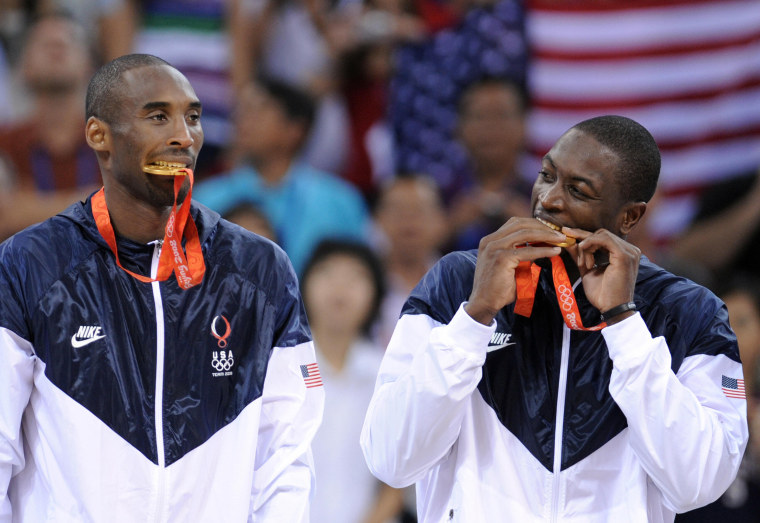After medal-winning Olympians stand on the platform, receive their medals, and solemnly listen to the gold medal winner’s national anthem, they leave the stage and face an army of photographers. In front of the flashing lights, many winners grab their medals and take a bite.
It takes years of grueling training and competition to nab gold at the Olympics. So why do the winners immediately chomp on their hard-earned prizes?
The simple answer: Because the photographers ask them to, said David Wallechinsky, president of the International Society of Olympic Historians and author of “The Complete Book of the Olympics," via email.
It happens so frequently that Tokyo Olympics organizers joked on Twitter: “We just want to officially confirm that the Tokyo 2020 medals are not edible!”
While Olympic historians aren’t sure which athlete started the trend, they believe the athletes nibble their prizes to test the metal. People once bit gold coins try to make an indent; a small tooth mark in a coin assured it consisted of real gold, which is more malleable than counterfeit gold-plated lead coins.

“We know that only in 1912 the gold medals were real gold and that in all later Olympics the gold medals were made from silver with a gilt layer to show it as being gold,” explains Tony Bijkerk, secretary-general of the International Society of Olympic Historians via email. The 2012 medals contain 1.34 percent of gold, making it one of the biggest medals.

“Unfortunately, the gold layer sometimes had a tendency to fade over the years. Fanny Blankers-Koen, the heroine of the 1948 Olympics in London, who was a good friend of mine, once told me that she had to have her four gold medals re-gilded two times over the years.” (Blankers-Koen was a 30-year-old mother of two who medaled in running events, helping to prove women could be as athletic as men.)
Even though the medal isn’t solid gold, Bijkerk suspects that Olympians could make a mark in the medal, depending on how hard they bite. And some really sink their teeth into their prizes. At the 2010 Winter Olympics, German luger, David Moeller, who won a silver medal, broke his tooth while mugging for cameras and showing off his bite.

Psychologist Frank Farley believes that medalists bite their medals because, at this point, it’s what winning Olympians do.
“Sports all have their eccentricities,” said Farley, a professor from Temple University in Philadelphia and former president of the American Psychological Association. “If you want to be part of the winning zeitgeist, that winning culture, you participate in that winning practice.”
But he believes that medal biting is more than Olympians simply acting like winners. “It makes your medals yours,” Farley said. “It’s an emotional connection with your accomplishment.”
And even if the Olympians do indent their medals, it makes the prize individual; bite imprints are as unique as the swirls on our digits.
“The concept of the icon, something representing something else, is pretty deep in all of us. In the Olympics, they have a twist on it; it’s like imprinting [yourself] there for all of time.”
